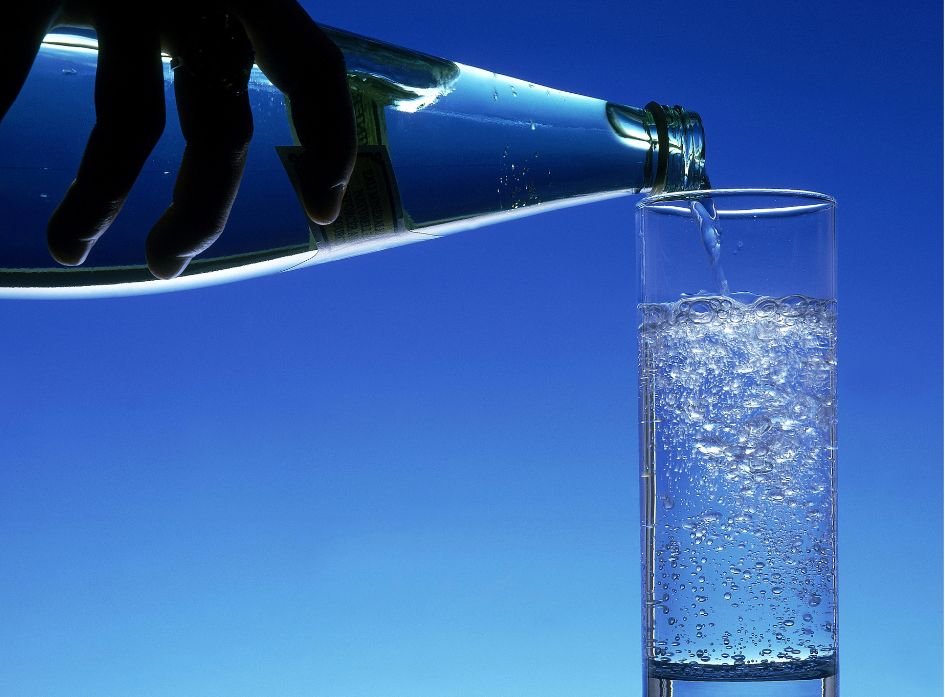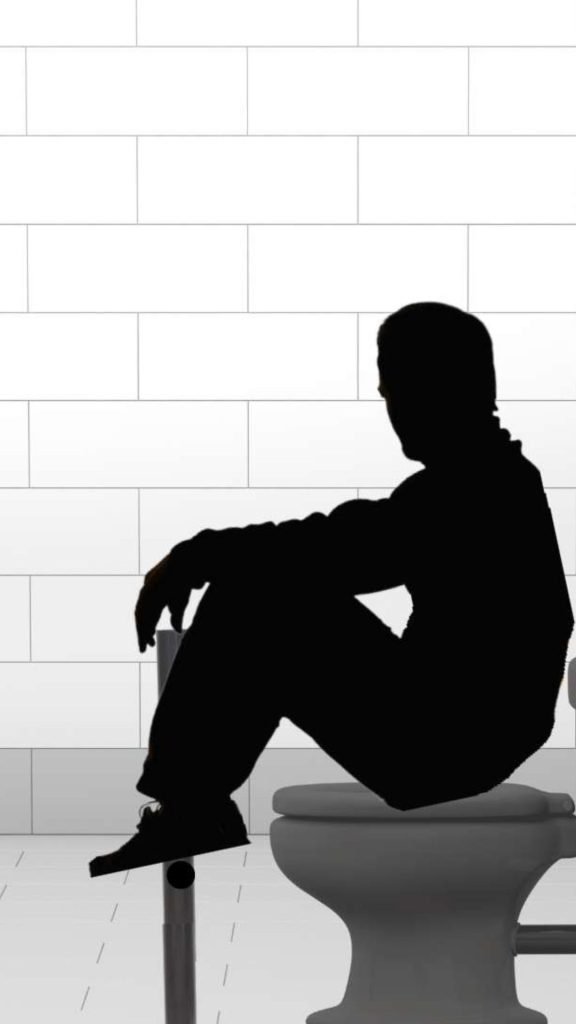Loaded Water: The Hidden Threat to Your Gut Health
Table of Contents
Picture this: You fill up your glass of water, take a refreshing sip, and feel that fleeting sense of hydration. You’re doing the “right thing,” thinking you’re fueling your body, flushing toxins, keeping your gut happy. But what if I told you that very same glass of water could be slowly sabotaging your digestive health, wreaking havoc on your microbiome, and leaving you bloated, constipated, and exhausted — all without a single warning sign?
It sounds dramatic, but let’s not mince words: your gut is the battlefield of your health. Every bite you eat, every sip you take, either fortifies it or slowly undermines it. And water — the simplest, most taken-for-granted nutrient on the planet — is far from immune to this reality.
TL;DR
Here’s the TL;DR for the skimmers, the browsers, the busy professionals: Not all water is created equal. “Loaded water” — water carrying hidden chemicals, toxins, and additives — can disturb your microbiome, inflame your gut lining, and create a cascade of digestive issues. But there’s good news: with a few strategic steps, you can reclaim your hydration and turn every sip into a gut-friendly powerhouse. And yes, tracking your gut health with The PoopSTICK is your secret weapon in this fight.
So buckle up. By the time you finish this post, you’ll understand why your water might be your gut’s worst enemy, how to identify the warning signs, and the exact steps to protect yourself — without losing your sanity or your daily hydration.
Key Takeaways
Before we dive deep, let’s highlight the big ideas you absolutely need to remember:
1. Water isn’t always “good for you.” What comes out of your tap or bottle can be loaded with hidden chemicals, microplastics, and heavy metals that interfere with gut health.
2. Your gut is your body’s command center. A disrupted microbiome leads to bloating, constipation, fatigue, and even mood changes. Poor hydration with contaminated water accelerates these problems.
3. Symptoms are subtle but telling. Gas, bloating, irregular stools, and brain fog may all trace back to what you drink — not just what you eat.
4. Science confirms the risk. Studies show chlorine, fluoride, PFAS, and microplastics negatively impact gut bacteria and digestive function. Your microbiome is quietly screaming for help.
5. You have the power to fix it. Filtering your water, avoiding cheap bottled options, supporting gut health with fiber and prebiotics, and monitoring your gut with tools like The PoopSTICK can restore balance — and optimize your digestion, energy, and overall wellness.
These five points aren’t vague suggestions — they are a blueprint for taking back control of your gut health. Ignore them at your peril, because loaded water is quietly, invisibly, wreaking havoc on thousands of unsuspecting people every day.

What is “Loaded Water”?
Let’s cut to the chase: when we say “loaded water,” we don’t mean flavored water or fancy mineral blends. Loaded water is any water carrying hidden substances — contaminants, chemicals, and materials that don’t belong in your body.
Think about your typical tap water. You expect it to be clean. It’s clear. It passes basic tests. But what about what it doesn’t advertise? Here’s a short list of the usual culprits:
Chlorine and chloramine: Added to municipal water to kill bacteria, these chemicals also kill beneficial gut bacteria once inside your digestive tract. A little disinfectant in your glass can quietly reshape your microbiome.
Fluoride: While public health campaigns tout it for dental health, fluoride in high doses can interfere with gut flora and thyroid function. Yes, even the “safe” doses might disrupt your gut.
Heavy metals (lead, arsenic, copper): Old pipes, industrial runoff, and poorly regulated sources can contaminate your water. Heavy metals inflame your gut lining, slow digestion, and contribute to chronic constipation.
PFAS and other “forever chemicals”: These synthetic compounds are everywhere — in packaging, the environment, and often, unfortunately, in your drinking water. They are linked to inflammation and metabolic disruption.
Microplastics: Yes, microscopic bits of plastic that end up in your water can lodge in tissues and affect gut function. They aren’t visible, but their impact is very real.
It doesn’t stop there. Bottled water is not automatically safer. Studies repeatedly find microplastics in bottled water, and the type of plastic can leach endocrine-disrupting chemicals over time. Even “premium” water brands are not immune.
The scary truth is that your body doesn’t know what hit it. Unlike the food you choose, water is something you don’t taste for safety. It slips in, silently impacting digestion, gut flora, and bowel regularity.
But here’s the silver lining: knowing what loaded water is, and how it impacts your gut, gives you complete control. With strategic filtration, mindful sourcing, and daily tracking (yes, The PoopSTICK included), you can transform your hydration into a digestive superpower rather than a hidden threat.
The Gut–Water Connection
Now that we’ve exposed what “loaded water” is, it’s time to understand why it matters. Your gut isn’t just a tube where food goes to get digested — it’s a complex ecosystem, a control center for your immunity, metabolism, and even your mood. And water, the most basic nutrient, plays a critical role in keeping this ecosystem alive and balanced.
Let’s be blunt: when your water is loaded with chemicals and contaminants, you’re feeding your microbiome poison instead of nourishment. Every sip that carries chlorine, fluoride, or heavy metals impacts the trillions of bacteria in your intestines — the bacteria responsible for breaking down fiber, producing essential vitamins, and maintaining intestinal lining integrity. Over time, this imbalance leads to dysbiosis, a gut environment where harmful bacteria dominate, triggering inflammation, bloating, constipation, diarrhea, and even brain fog.
Here’s the thing most people don’t realize: water is not just a delivery mechanism for hydration. It’s a carrier of chemical signals. Every element dissolved in your water interacts with your gut. When those elements are benign, or better yet, beneficial minerals, your gut thrives. When they’re toxic, subtle but destructive changes happen. The cells lining your intestines weaken, bacterial populations shift, and inflammation becomes the default state. Your digestive system becomes sluggish, your stool irregular, and your body starts sending you signals that you might ignore — gas, bloating, fatigue, brain fog — all because your water isn’t as innocent as it looks.
Even more shocking: studies suggest that poor water quality might contribute to leaky gut, a condition where your intestinal lining becomes permeable. Once that barrier is compromised, toxins and undigested particles escape into your bloodstream, forcing your immune system into overdrive. The result? Chronic inflammation, fatigue, allergies, and even autoimmune risk.
So every time you take a sip of loaded water, you’re not just quenching thirst — you’re feeding or starving your gut. And if you’re not paying attention, you could be sabotaging your digestion silently, day after day.
Science & Symptoms — How Loaded Water Impacts Your Gut
We’ve talked theory — now let’s get into the hard science and the real-world symptoms that prove loaded water is silently wrecking digestion.
1. Chlorine and chloramine: Municipal water systems often add chlorine or chloramine to prevent bacterial growth. While effective for sanitation, research has shown these chemicals kill beneficial gut bacteria, similar to how antibiotics disrupt your microbiome. A 2018 study published in Environmental Health Perspectives found that chlorine exposure in drinking water is associated with reduced microbial diversity in the gut — the very diversity required for smooth digestion and strong immunity.
2. Fluoride: The debate on fluoride continues, but research increasingly shows that excessive fluoride can affect gut bacteria and thyroid function. Ingesting it daily may shift bacterial populations in ways that encourage constipation, bloating, and even insulin resistance.
3. Heavy metals: Lead, arsenic, and copper — often present due to old pipes or environmental contamination — are directly inflammatory. They irritate the intestinal lining, slow digestion, and can even bind to essential nutrients, preventing absorption. Heavy metals aren’t just a future risk; they are a present digestive hazard.
4. PFAS (“forever chemicals”): These synthetic chemicals accumulate in the body over time. Emerging research links PFAS exposure to gut dysbiosis, systemic inflammation, and metabolic disruption. This is no longer hypothetical — it’s a real contributor to modern digestive disorders.
5. Microplastics: Found in both tap and bottled water, microplastics aren’t visible, but they lodge in tissues and can affect gut lining health. While the research is still evolving, preliminary studies show microplastics can trigger inflammatory responses in intestinal cells.
Symptoms That May Point to Loaded Water Issues
Bloating & Gas: A telltale sign your gut bacteria are off balance.
Constipation or Irregular Stools: Water that harms your microbiome slows digestion.
Fatigue & Brain Fog: Disrupted gut bacteria impact neurotransmitter production, affecting energy and focus.
Skin Issues: Acne, dryness, or rashes can signal internal inflammation linked to poor hydration quality.
Recurring Gut Distress: Diarrhea, cramping, or unpredictable digestion may indicate exposure to contaminants over time.
Here’s the uncomfortable truth: your gut is screaming for help long before you feel catastrophic symptoms. If you’re bloated after meals, constipated in the morning, or feeling sluggish throughout the day, your water may be part of the problem. And unlike food, it’s often invisible and ignored — a silent saboteur in your everyday routine.

How to Protect Your Gut + The PoopSTICK Advantage
The good news? You don’t have to live at the mercy of loaded water. With a few practical, scientifically backed steps, you can reclaim your hydration, protect your microbiome, and keep your gut running like a finely tuned machine.
Step 1: Filter Like a Pro
Not all filters are created equal. Carbon filters remove chlorine, while reverse osmosis systems can eliminate heavy metals, PFAS, and other contaminants. Some advanced filters combine multiple technologies to give you truly clean water. The goal: neutralize the harmful stuff without stripping essential minerals that your body actually needs.
Step 2: Avoid Bottled Water Traps
Premium bottled water is often just tap water in a fancy container. Microplastics are common, and the plastic itself can leach chemicals. When possible, invest in filtered tap water — it’s cheaper, cleaner, and better for your gut in the long run.
Step 3: Support Your Microbiome Daily
Even the cleanest water isn’t enough if your gut bacteria aren’t supported. Feed your microbiome with high-fiber foods, prebiotics, and probiotics. Think vegetables, legumes, fermented foods, and whole grains. Every sip of water is more beneficial when your gut bacteria are thriving.
Step 4: Monitor Your Gut Health With The PoopSTICK
Here’s where strategy meets simplicity. The PoopSTICK is more than a tool — it’s your gut’s personal feedback system. Track hydration, stool quality, and digestive function to understand exactly how your water affects your body. The result: real-time insights, actionable data, and proof you’re moving in the right direction.
Step 5: Make It a Habit
Consistency matters more than perfection. Track your water, check your filters, monitor your gut, and pay attention to your body’s signals. Over time, you’ll notice improved stool regularity, increased energy, and fewer digestive complaints — all from controlling the single most overlooked variable: the water you drink.

Let me be blunt: hydration is a choice — and right now, it might be a toxic one. Every sip of water either fuels your gut or sabotages it. Loaded water doesn’t just impact digestion; it affects energy, immunity, mental clarity, and overall quality of life.
But there’s a silver lining: armed with the right knowledge, tools, and habits, you can take back control. Filter your water, avoid hidden contaminants, support your microbiome, and use The PoopSTICK to track, optimize, and protect your gut.
Your gut doesn’t lie. Your stool doesn’t lie. And now, your water doesn’t have to either. Make the smart choice today — turn every sip into a gut-friendly powerhouse and see the results for yourself.
Remember: Better water = better poops = better health. And The PoopSTICK is here to guide you every step of the way.
Join our Email List
About the Author

James
Founder of The PoopSTICK | Gut Health Advocate | Healthcare Pro
I’m James, the guy who talks about poop so you don’t have to (but probably should). With over 12 years of experience in the healthcare world—and a family history of colon cancer which made gut health personal—I created The PoopSTICK to give people a better, more natural way to poop.
After trying almost every pooping gadget, toilet stool, and gut health trend under the sun, I realized most products were uncomfortable, overhyped, or just plain awkward. So I built something better—designed for real humans who want real results.
The PoopSTICK isn’t just a product; it’s part of a movement to take gut health seriously (while still laughing a little). Through our blog, I share natural health tips, poop-positive education, and easy ways to take control of your digestion—because better bowel movements should be a normal part of life, not an embarrassing mystery.
If you're someone who cares about health, wants to feel better naturally, or just wants to poop like a champion, you're in the right place.
Let’s talk sh*t—so you can get rid of it better.

James
Founder of The PoopSTICK | Gut Health Advocate | Healthcare Pro
I’m James, healthcare veteran and gut health advocate on a mission to help you poop better—naturally. With over 12 years in the industry and a personal drive to prevent colon cancer, I created The PoopSTICK after being let down by every “solution” out there.
This isn’t just a stick—it’s a movement (literally). I mix humor, health tips, and real talk to make better bowel movements something we can actually talk about.
Let’s ease your poop!
Past Blog Posts

What Your Stool Color & Shape Reveal About Your Gut Health
Your poop is a real-time report card on your gut health—and most people are ignoring it. From color changes to weird shapes to the clues hidden in texture, every bowel movement tells a story. This guide breaks down exactly what your stool says about digestion, inflammation, and the hidden issues you can’t see.

Is Wheat Wrecking Your Gut? What Celiac Disease Reveals
Wheat isn’t the villain—it’s the kind of wheat that’s wrecking your gut. From ancient grains to modern hybrids, discover how today’s wheat triggers inflammation, worsens celiac symptoms, and sabotages digestion—and what smarter, safer alternatives can finally bring your gut back to balance.

Gut Health and GLP-1: The Hidden Link to Weight and Energy
Your gut isn’t just digesting food—it’s controlling your hunger, energy, and even how fast you burn fat. Inside you is a powerful hormone called GLP-1, and when your gut’s out of balance, it shuts down. Discover how to reactivate this hidden fat-burning axis naturally—no drugs, no gimmicks, just real gut power.

